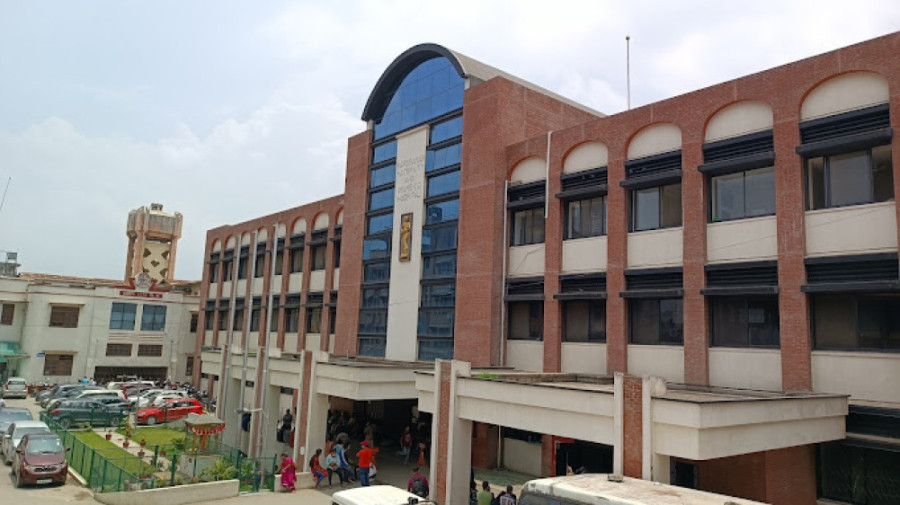Health
Maternity Hospital starts screening pregnant women, new mums for mental health issues
Doctors say mental health problems in pregnant women and new mothers are more severe than previously believed, with around 20 percent women affected.
Arjun Poudel
Last week, doctors at Thapathali-based Paropakar Maternity and Women’s Hospital diagnosed a new mother in her late 20s with postnatal depression. Her newborn baby was admitted to the neonatal intensive care unit of the hospital due to health complications, and the mother was under care in the maternity ward.
“We had to start her on anti-depressants, as she was showing serious symptoms, including suicidal thoughts,” said Dr Pratikshya Ghimire, a psychiatrist at the hospital. “She felt sad all the time, worried about the newborn's future, and had lost her appetite.”
Mental health problems during pregnancy are the second leading cause of maternal deaths, after excessive bleeding during childbirth, also known as postpartum haemorrhage, and pre-eclampsia [pregnancy-related high blood pressure disorders. A report on maternal mortality unveiled last year by the National Statistics Office showed that six percent of maternal deaths were due to self-harm (suicide), with most cases occurring during pregnancy.
To address mental health problems during pregnancy, the Ministry of Health and Population has started outpatient care services at the Maternity Hospital.
“We have not only started outpatient care but also begun screening inpatients for mental health conditions,” said Dr Ghimire. “We have diagnosed around a dozen and a half patients with serious mental health problems.”
According to Dr Ghimire, the woman had an inter-caste marriage, and neither her in-laws nor her own parents accepted her marriage, contributing to her mental health struggles. Several other pregnant women and new mothers have also been found suffering from mental health problems, each at various stages of severity.
“The Health Ministry had deputed one psychiatric doctor to our hospital, and we started offering outpatient services after her arrival,” said Dr Shree Prasad Adhikari, the hospital's director. “We are also working on training all hospital staff in mental health screening so that conditions can be diagnosed early. Once mental health problems are identified, patients can be referred to specialists.”
Officials hope that screening pregnant women for mental health problems and providing prompt treatment will help reduce maternal deaths, which have been rising alarmingly of late.
Doctors say prenatal and postnatal depression can occur at any time during pregnancy or after childbirth. Shifts in hormone levels during pregnancy and after childbirth can significantly affect mood. Many women feel anxious about changes happening to their bodies. Some may even have financial concerns and some worry about taking on new and additional responsibilities.
Some women experience extreme sadness, anxiety, fatigue, and changes in sleeping and eating habits during pregnancy or after childbirth. Experts warn that prenatal and postnatal depression along with anxiety and other mental health issues, can lead some women to take their own lives.
They also emphasise that excessive bleeding after childbirth, also known as postpartum haemorrhage, pre-eclampsia (pregnancy-related high blood pressure disorders), and suicide are preventable.
“Timely screening for mental health problems and proper counselling can significantly reduce the mental health problems faced by pregnant women and new mothers,” said Adhikari. “We have launched this initiative at our hospital, and this is something other hospitals should also implement.”
Nepal reduced the maternal mortality rate from 539 per 100,000 births in 1996 to 239 per 100,000 births in 2016. For this, the country also received a Millennium Development Goals award.
The 2021 census report showed that in every 100,000 live births, 151 women died from maternity-related complications. According to the report, 88 maternal deaths were prevented in every 100,000 live births between 2016 and 2021.
Nepal’s target under the UN’s Sustainable Development Goals is to reduce the maternal mortality rate to 75 per 100,000 births by 2030.




 24.04°C Kathmandu
24.04°C Kathmandu















